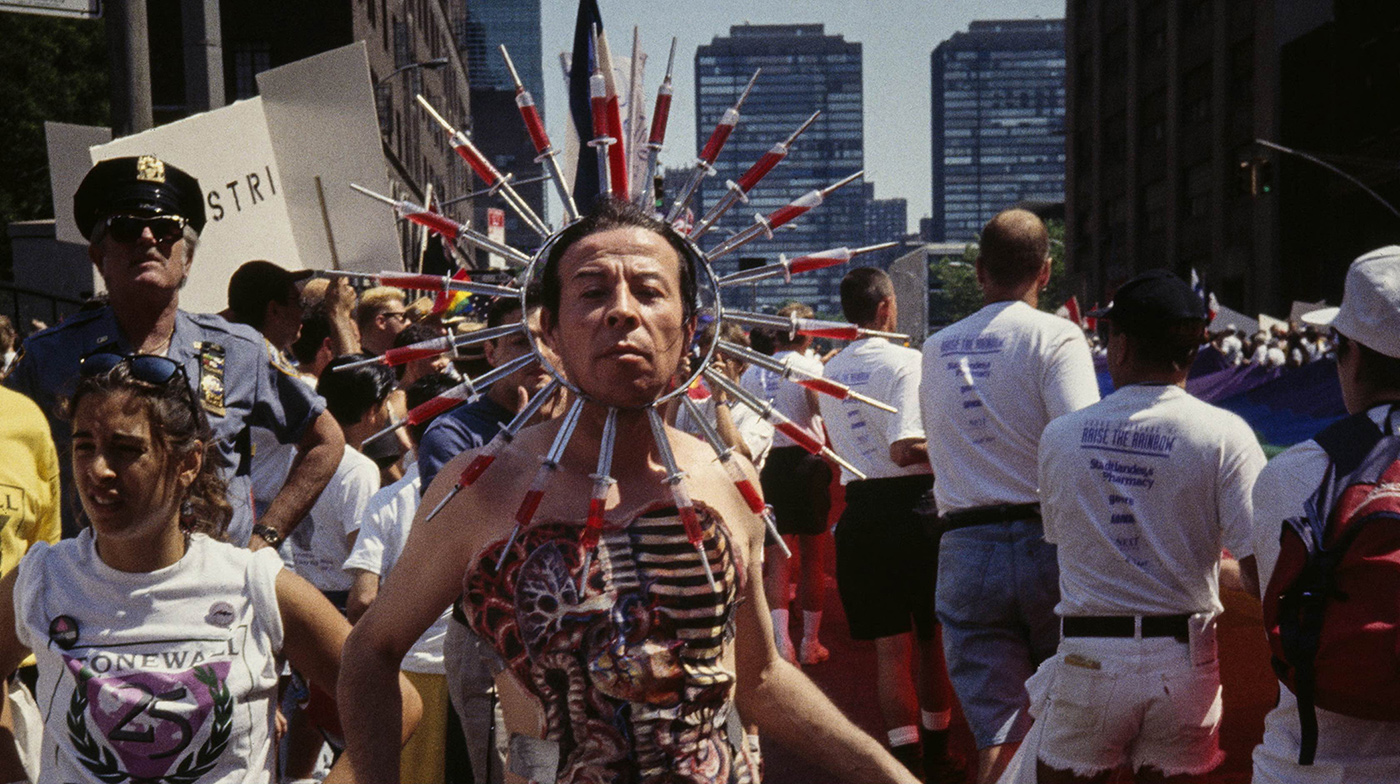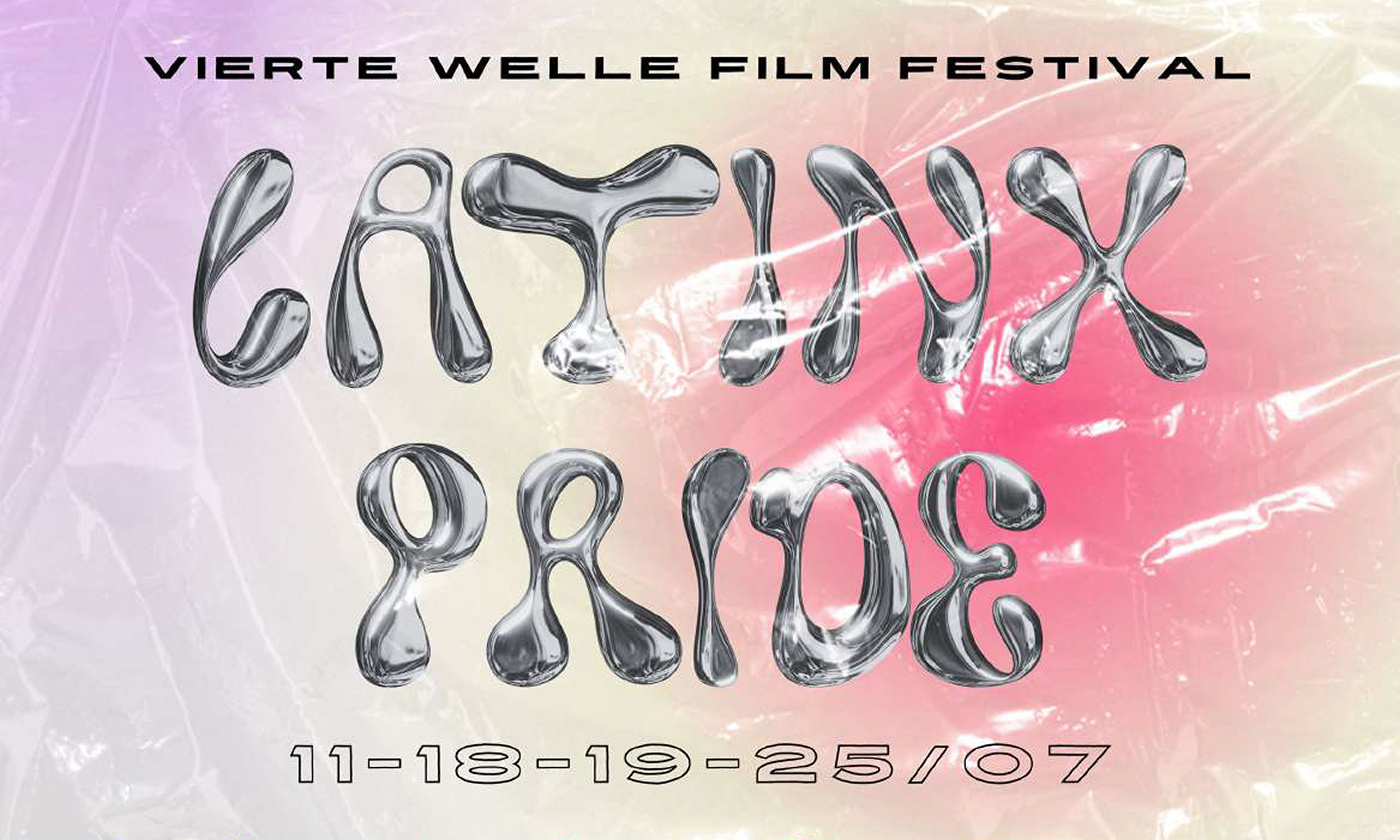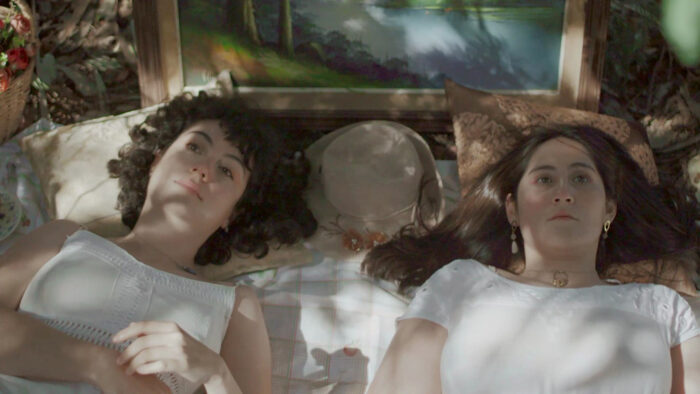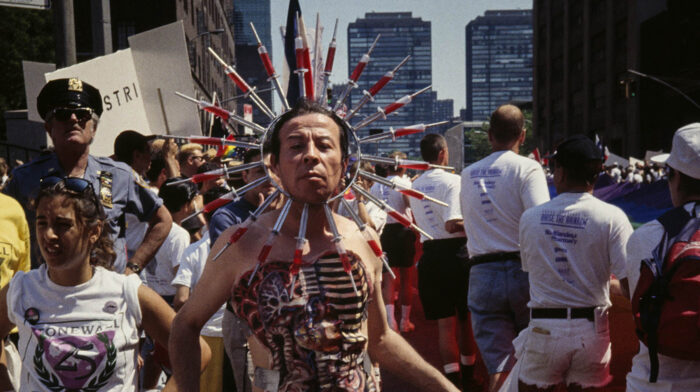Pedro Lemebel, writer, visual artist and pioneer of the Queer movement in Latin America, shook up conservative Chilean society during Pinochet’s dictatorship in the 1980s. Body, blood and fire were protagonists in his work that he attempted to perpetuate in the last eight years of his life in a film he was never able to see finished.
In an intimate and poetic journey through his risky performances dealing with homosexuality and human rights, “Lemebel” portrays a culmination of yearning immortality.

Joanna Reposi Garibaldi, born 1971, Chilean. Screenwriter, director and visual artist. Master of Arts at Goldsmiths College, University of London. Her short film, “Sam & Dave” (2002) was premiered at the Institute of Contemporary Art in London and selected at the 9th Sheffield Int’l Documentary Film Festival. “Locos del Alma” (2003), her first feature film received Special Mention from the Jury in FIDOCS and was selected in Crètiel Film Femme Festival, France (2005), among others. In 2017 she made the short film “Matriz” (2017) which was exhibited at the Museum of Contemporary Art in Santiago de Chile and in the Biennal of Image and Movement of Buenos Aires (2018). “Lemebel”, her second feature film has obtained important international awards (Teddy Award for best Documentary in Berlinale (2019) and has been selected at festivals in more than twenty countries. She is currently developing her next film.
“I met Pedro in 1999 when I was working on a video art piece dealing with “El Manifiesto”, one of his most emblematic texts. Since that project we formed a friendship based on the respect we both shared for our respective work. In 2007, we decided to make a film together and I began filming him in personal spaces. That closeness also permitted me to film his final days when he was fighting throat cancer, ultimately causing him to lose his voice and finally his life.
When we thought about the film the hours would fly by speaking about our lives or what we were passionate about at that moment, always over beers and with music in the background. I was moved by his many facets, especially his humor and lucidity.
Being with him was to share in the warmth he transmitted to his intimate friends, as well as the vertigo of totally unpredictable encounters. Pedro’s aesthetic incited me to reinterpret the archives of his life and to create a series of urban interventions in pursuit of a cinematographic harmony in tone with his work.
Among the various projects that he left incomplete was this very film. To finish it was to conclude a process that we started together and that always sought to amplify his voice.”





